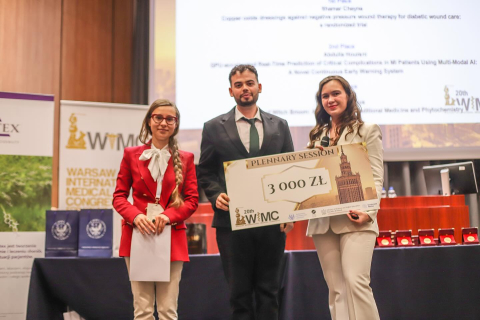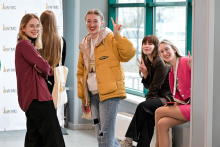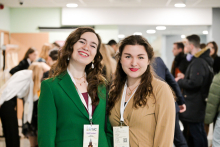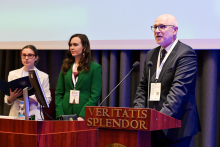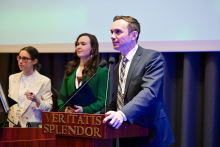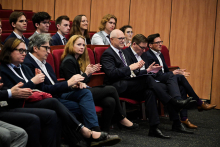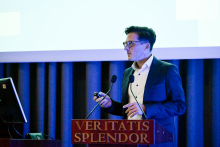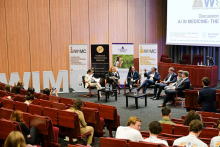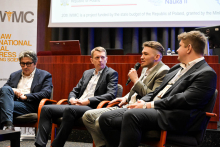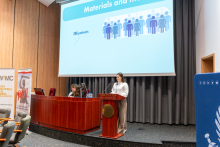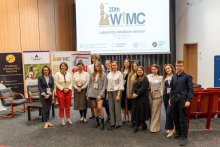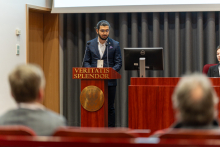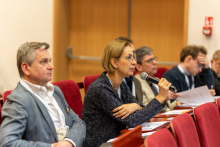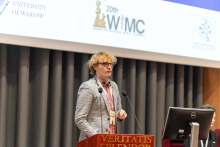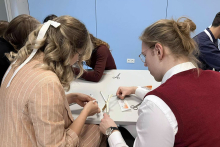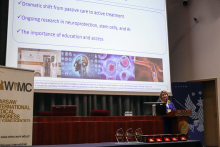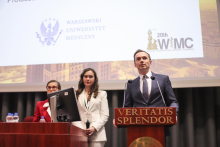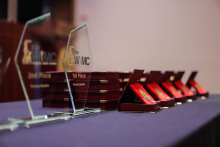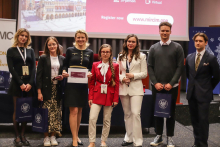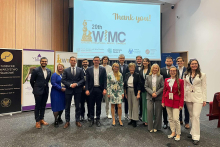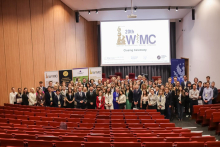The program of the congress, held April 11-13, included 30 scientific sessions, nearly 50 workshops, two panel discussions and three expert lectures. All to inspire and encourage collaboration. The whole event was organized by students from the MUW Student Scientific Society with the support of student scientific clubs and the university, as well as partners and sponsors, and thanks to a grant from the Ministry of Science and Higher Education.
- WIMC is a very important congress in the life of our university - said Rector Professor Rafal Krenke at the opening of the conference - For two decades it has evolved into one of the most significant platforms where we can present students’ research results, engage them in critical discussions, seek new inspirations and build scientific contacts to support the exchange of student ideas, knowledge and research in the medical field.
- It is said that you build the foundations of your future life before you are 30 – stressed in turn Prof. Mariusz Tomaniak, the Rector's Plenipotentiary for the Student Scientific Movement - I firmly believe that studying medicine is the best time to start researching and building a career. Although the fact that you are sitting here today means that you already know the secret, so please continue your research and don't stop.
Presenting the results of your own research is a valuable skill
As many as 630 young scientists decided to submit speeches to the congress this year, of which 400 were qualified. They presented the results of their research in selected thematic areas during one of the sessions. And there were more than 30 of them. The papers were evaluated by scientists with a big academic achievements. What did they take into account? Substantive values, attractiveness of the topic, independence of the work, but also the manner of presentation. Engagement, clarity of speech or interaction with the audience are as important as modern research methods or surprising results. WIMC allows you to acquire or polish this skill.
Winners were selected in each session and awarded during the official closing ceremony of the conference. The website, which lists the winners of all sessions
- Sharing research results is an opportunity to verify one's hypotheses and look at a problem from a different angle. It also fosters the spread of knowledge that can assist students who are just planning the research process. And this is what we care about the most - stressed Maria Zmijewska, President of the 20th edition of the congress - We are proud that so many young people are interested in science, and that they have decided to take part in our congress. I hope that the next editions will also enjoy such great interest.
Lots of practice
This year, the workshop offer included almost 50 proposals! The organizers managed to invite many student scientific clubs operating at MUW, whose representatives shared their skills. Because biomedical science is all about practice.
The SKN Neonatology and Neonatal Intensive Care provided an opportunity to practice life-saving procedures for the youngest patients, while the SKN at the Department of Cardiac Surgery UCC MUW cannulated the heart during extracorporeal circulation and tied surgical knots. At the workshop prepared by the SKN Otorhinolaryngology, one could discover the differences between peripheral and central vertigo, perform diagnostic maneuvers and learn how to treat patients with a common condition encountered in emergency departments - benign paroxysmal vertigo; at the SKN Kidney workshop, one could learn how to effectively drain abscesses and place drains; and at the SKN Pediatric Rehabilitation workshop, one could learn how to perform a neurological examination, assess reflexes and muscle tone.
Inspiring lectures and interesting discussions
The first speaker, Prof. Marek Postula, talked about whether immunization and healthy lifestyles should be combined in a complementary strategy. Igor Zalewski answered the question, what makes some people immediately perceived as reliable and professional, while others struggle to gain trust? Prof. Anita Arsovska discussed the history of stroke treatment, as well as the use of new treatments.
In a panel discussion titled “Artificial intelligence in medicine - the future is now,” experts Prof. Maciej Sinski, Piotr Kalinowski, MD, PhD, Adam Górecki-Gomola, MD, Dorota Szymborska, Aneta Sieradzka and Mateusz Kuras presented innovations based on artificial intelligence, the ethical challenges associated with it and the future of this technology in healthcare. The panel was moderated by Emilia Wloszek, Head of the WIMC Organizing Committee.
The second discussion panel, under the auspices of Prof. Anna Kostera-Pruszczyk, Chairwoman of the Rare Diseases Council, dealt with the complexity of rare diseases diagnosis from multiple points of view: patient, clinician and geneticist. The panel included Dr. Ewa Sobieszczuk, Dr. Krzysztof Szczałuba, Prof. Piotr Skrzypczyk and a patient living with myasthenia gravis. The panel was moderated by Piotr Olejnik, a member of the WIMC Organizing Committee.
In addition to the Rector, the event was also attended by Prof. Marek Kuch, Vice Rector for Student Affairs and Education, Prof. Dorota Olczak-Kowalczyk, Vice Rector for Human Resources, Prof. Agnieszka Cudnoch-Jędrzejewska, Vice Rector for Clinical Affairs and Investments, and Prof. Michal Grąt, Vice Rector for International Relations, Development and Promotion.
The next edition of the congress will be held next year, on April 17-19, 2026! You are invited!
The organizing committee of the WIMC, in addition to those mentioned above, consisted of students: Karolina Kowalczyk, Kamil Tkacz, Kamila Krupa, Maja Kłopecka, Weronika Dwojak, Emilia Kulikowska, Adrian Bednarek, Jan Zakrzewski, Mikołaj Biegański, Mateusz Wójcik, Zofia Kurek, Julia Dźwinacka, Marta Mękarska, Ewelina Piórkowska, Paweł Piluch, Aleksandra Kowalska, Magdalena Kędrak.
